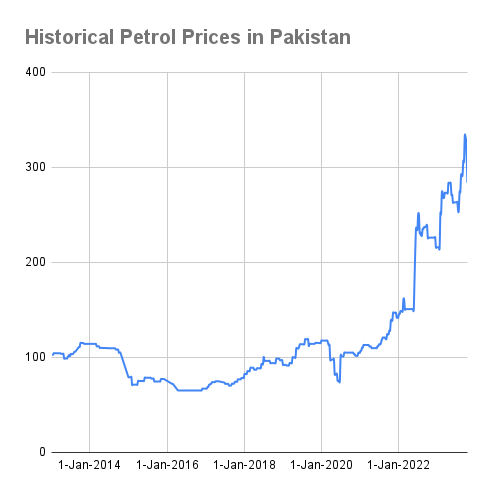
Introduction
In a surprising and much-welcomed move, the Government of Pakistan has taken a significant step to address the country’s economic challenges by slashing the prices of petrol and high-speed diesel. Effective from October 16, 2023, the new price of petrol is set at Rs. 283 per liter, down by an astonishing Rs. 40, and high-speed diesel now stands at Rs. 303.18 per liter, after a reduction of Rs. 15. This bold decision comes as a result of the Pakistani Rupee’s appreciation against the US Dollar and marks a pivotal moment in the nation’s economic recovery. Let’s explore the potential impacts of this price decrease on the economy and its role in combating inflation.
- Relief for Consumers
The immediate and most apparent impact of this price reduction is the relief it offers to consumers. The cost of living in Pakistan has been steadily rising, placing a heavy burden on the average household. The reduction in petrol and diesel prices will ease this financial strain, allowing individuals and families to allocate more of their income towards other essential needs, including food, education, and healthcare.
- Reduction in Transportation Costs
With the new, lower fuel prices, the transportation industry is also set to benefit. Lower fuel costs will reduce operational expenses for businesses, leading to more competitive pricing for goods and services. This, in turn, will help curb inflation as the prices of essential goods may stabilize or even decrease, thereby improving the purchasing power of consumers.
- Improved Business Competitiveness
Lower fuel costs can boost the competitiveness of businesses. Manufacturing and production costs may decrease, making Pakistani products more affordable in the global market. This can increase exports, bringing in foreign exchange and bolstering the nation’s foreign reserves.
- Inflation Control
One of the primary concerns in Pakistan’s economy has been inflation. The cost-push inflation driven by rising energy costs has been a significant contributing factor. By reducing fuel prices, the government is addressing this problem head-on. The decreased petrol and diesel prices should lead to lower transportation costs, ultimately reducing the prices of goods and services. This, in turn, will help to control inflation and stabilize prices in the long run.
- Fiscal Responsibility
This move reflects the government’s commitment to fiscal responsibility and economic stability. By taking aggressive action to decrease fuel prices, the government is showing that it is willing to act in the best interests of the people and the economy. It demonstrates the ability to adapt to changing economic conditions and make decisions that promote economic well-being.
- Rupee Appreciation
The appreciation of the Pakistani Rupee against the US Dollar is a significant contributing factor to this reduction in fuel prices. A stronger Rupee means that the cost of importing oil decreases, enabling the government to pass on these benefits to consumers. This further underscores the importance of a stable exchange rate and its impact on domestic prices.
The Government of Pakistan’s decision to slash petrol and diesel prices by Rs. 40 and Rs. 15, respectively, is a pivotal move in addressing the economic challenges the nation faces. This price reduction offers immediate relief to consumers, reduces transportation costs, and enhances the competitiveness of businesses. Most importantly, it plays a crucial role in combating inflation and stabilizing the economy.
Data Source:https://portal.karandaaz.com.pk/dataset/petrol-avg
Leave a Reply